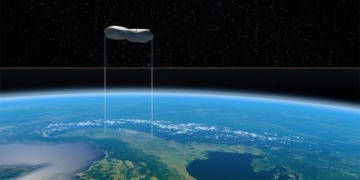A Kiss: More Than Just an Expression of Love
>>> Unique poster knows… kissing
>>> The Unexpected Transformation of the Body “Every Second” When Kissing
The Origin of the Term. The word “kiss” originates from Old English “cyssan”, and its exact origin is unknown. However, many believe it describes the sound made when two people kiss. The Romans had specific terms for different types of kisses: kissing the hand or cheek was called osculum, kissing on the lips was basium, and a passionate kiss was termed saviolum.
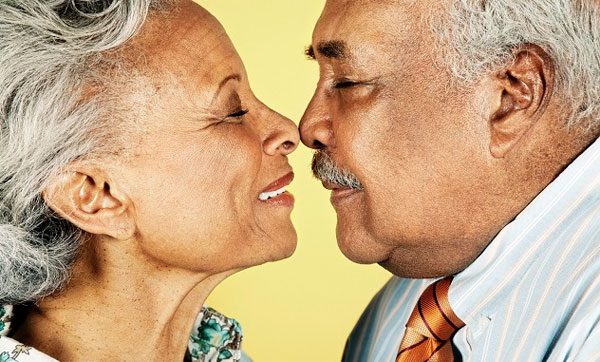
10% of the World Does Not Kiss. Mangaia is the oldest island in the Pacific, approximately 18 million years old. The inhabitants had never heard the word “kiss” until they were introduced to English in the 1700s. Currently, about 90% of cultures worldwide embrace kissing, while the remaining 10% abstain for various reasons. For instance, some regions in Sudan do not kiss because they believe the mouth is the window to the soul and fear their souls may be stolen through mouth-to-mouth contact.
The Eskimos living in the Arctic rub noses instead of kissing with their mouths. They believe this helps prevent their mouths from freezing together in extreme cold. The Eskimos only make contact with their eyes and noses, which is their unique way of expressing affection.

How Kissing Spread Around the World. Scientists are uncertain whether kissing is an instinctive behavior or a learned experience. Many believe that kissing originated when a mother chewed food and transferred it to her child’s mouth, similar to birds.
Kissing is a romantic gesture found in poetry dating back to the Sumerian era, one of the earliest civilizations in history. It is also depicted in ancient Egyptian love poetry. Historians suggest that the practice of kissing likely spread when Alexander the Great invaded India, where kissing had been common for centuries. Kissing is described in the Vedas as “the touching of mouths.” Alexander introduced his knowledge of kissing to the Western world, and from then on, the act gradually spread globally.
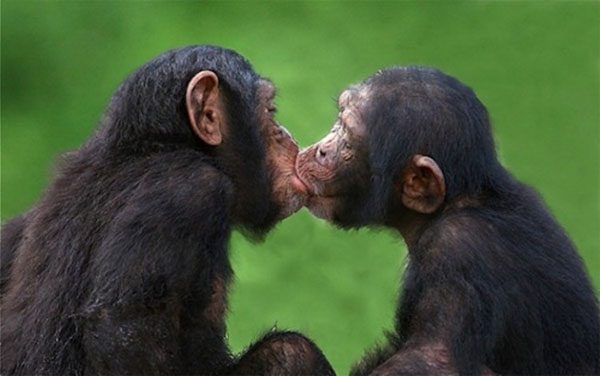
Kissing in Animals. Chimpanzees and many other primates also engage in kissing behaviors similar to humans. Additionally, elephants, known for their intelligence and emotional depth, exhibit comforting gestures by using their trunks to touch another elephant’s mouth during difficult times, such as the death of a herd member.
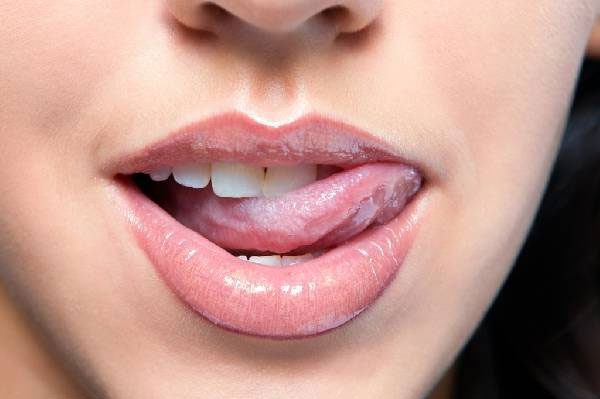
Kissing Has Many Health Benefits. Some studies indicate that kissing is beneficial for humans. Most bacteria in the human mouth are identical, with only 20% being different; each kiss helps boost the body’s immune system.
Kissing is good for oral health, increasing saliva production, cleaning plaque, reducing gum inflammation and cavities, and helping keep teeth white and bright. Kissing also helps lower blood pressure due to the dilation of blood vessels. While diseases such as herpes, the common cold, and even meningitis can be transmitted through kissing, these cases are rare. Scientists assert that the benefits of kissing far outweigh the associated risks.
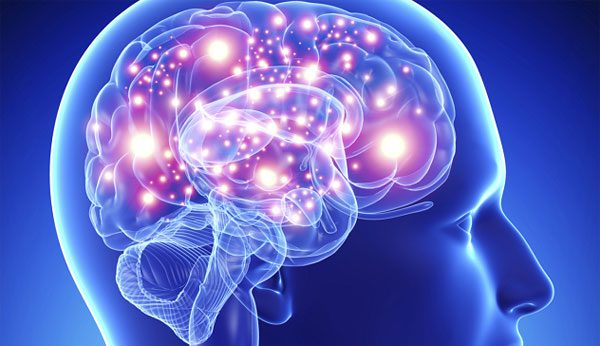
The Science of Kissing. The study of kissing is known in English as philematology, focusing on biological mechanisms, related hormones, and the reasons why humans kiss. Most people tend to tilt their heads to the right when kissing.
A kiss transmits flavor, sound, and tactile sensations, all affecting individual perceptions and making them want to kiss again. Humans have highly sensitive lips, equipped with more nerve endings than most other body parts.
Kissing involves all 34 muscles in the face. The most important muscle used during kissing is the Orbicularis, which helps change the shape of the mouth and lips when kissing. Researchers estimate that the average person spends about 2 weeks of their life kissing. Most people burn approximately 1,560 calories per hour of kissing, although this depends on the type of kiss.

Kissing Records. According to the Guinness World Records, the longest kiss record belongs to the couple Ekkachai and Laksana Tiranarat from Thailand. They locked lips continuously for 58 hours, 35 minutes, and 58 seconds.

Chemical Processes During Kissing. Kissing releases a chemical called dopamine, a powerful hormone that affects the same brain areas as cocaine, making individuals feel pleasure and exhilaration. Prolonged kissing also releases oxytocin, creating feelings of tranquility and relaxation.

Kissing in Public is Prohibited. In some countries today, kissing and showing affection in public is illegal. For example, in Guanajuato, Mexico, it is considered lewd behavior and is strictly punished. In some nations, there are even harsher penalties. In 2010, in Saudi Arabia, a man was sentenced to 4 months in prison for hugging and kissing a woman in public.
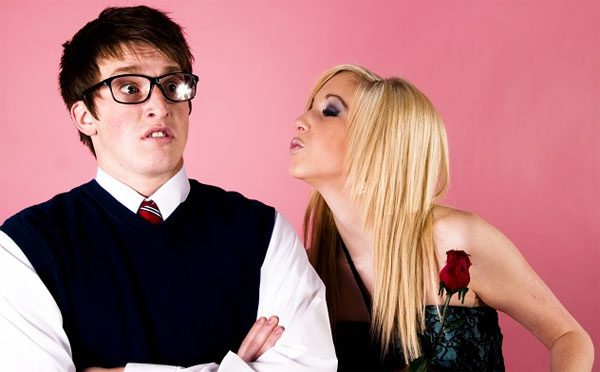
Fear of Kissing. Many people feel anxious when giving their first kiss to someone. However, as they gain more experience, these feelings of nervousness, like those of a first kiss, tend to fade over time. Particularly, a small number of individuals may suffer from a severe phobia of kissing called philemaphobia, which can occur following experiences of assault and sexual abuse.
2 out of 3 People Tilt Their Heads Right When Kissing. According to a recent report published in the journal Nature, people tend to tilt their heads to the right when kissing rather than to the left. A scientist from Ruhr University in Germany analyzed 124 couples kissing, and 65% of them tilted their heads to the right.

65% of couples tilt their heads to the right when kissing.
Neurons Help Us Kiss in the Dark. In the 1990s, a research team at Princeton University discovered that certain premotor neurons in the cortex perform closely related functions in helping you recognize tactile sensations and perceive areas around your face. This may explain why you can still find your loved one’s lips even when the lights are out.
Kissing Reduces Stress and Creates a Sense of Safety. Over time, kissing lowers levels of the stress hormone cortisol, making you feel safe and protected. The longer you stay close to someone, the more secure and stable you feel.
Interesting Facts About Kissing:
The intimacy level of kissing is even higher than that of sex. Sex can sometimes feel quite impersonal, as if you are being swept along by a pre-programmed routine. In contrast, when kissing, you and your partner are like interlocking gears; you feel their warmth and savor their taste.
According to researchers’ calculations, the average German kisses about two to three times a day. This could be a goodnight kiss on the cheek or a passionate kiss during a date. By the age of 70, they will have spent a total of 76 days kissing, and that number is still on the rise.
Different cultures have different perceptions of kissing. The most common kissing gesture is found in the Middle East, followed by Asia, Europe, and North America. There is no evidence of kissing being found in Central America, sub-Saharan Africa, New Guinea, and the Amazon.
Chimpanzees and a few fish species exhibit mouth-to-mouth behavior, though this is hard to compare to human kissing.
The pandemic and the prolonged social distancing have somewhat affected kissing habits.
|
Why is it kissing on the lips? Humans can express romance in other ways, such as forehead rubbing, fist bumps, or butt touches. We’ve all heard stories about the Eskimos in Alaska or the Māori people of New Zealand greeting each other by rubbing noses. There are countless places we could touch each other’s bodies in a more hygienic way. There has yet to be a definitive conclusion on why ancient people invented kissing, but researchers have proposed several hypotheses, with the most widely accepted being that lip kissing stems from human reproductive instincts, suggesting that kissing helps us identify suitable partners. Michael Stevens, a science educator in the U.S., once stated: “Your saliva carries information about you, about your health status. The mucous membrane in our mouths allows hormones like testosterone to seep through, so kissing becomes a way we ‘test’ each other. A beautiful kiss could be biological evidence that the person is a suitable partner.” He also explained that prehistoric people who kissed more than others likely chose better partners and produced generations with better genes for evolution. |

















































